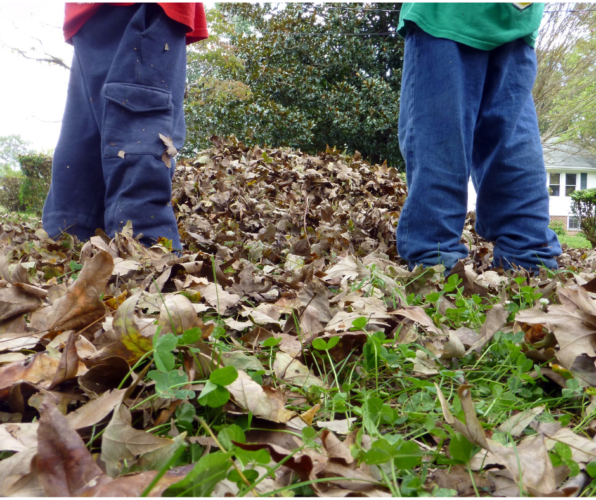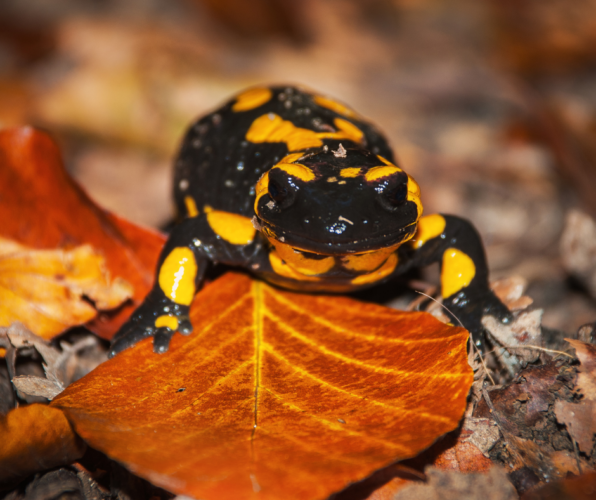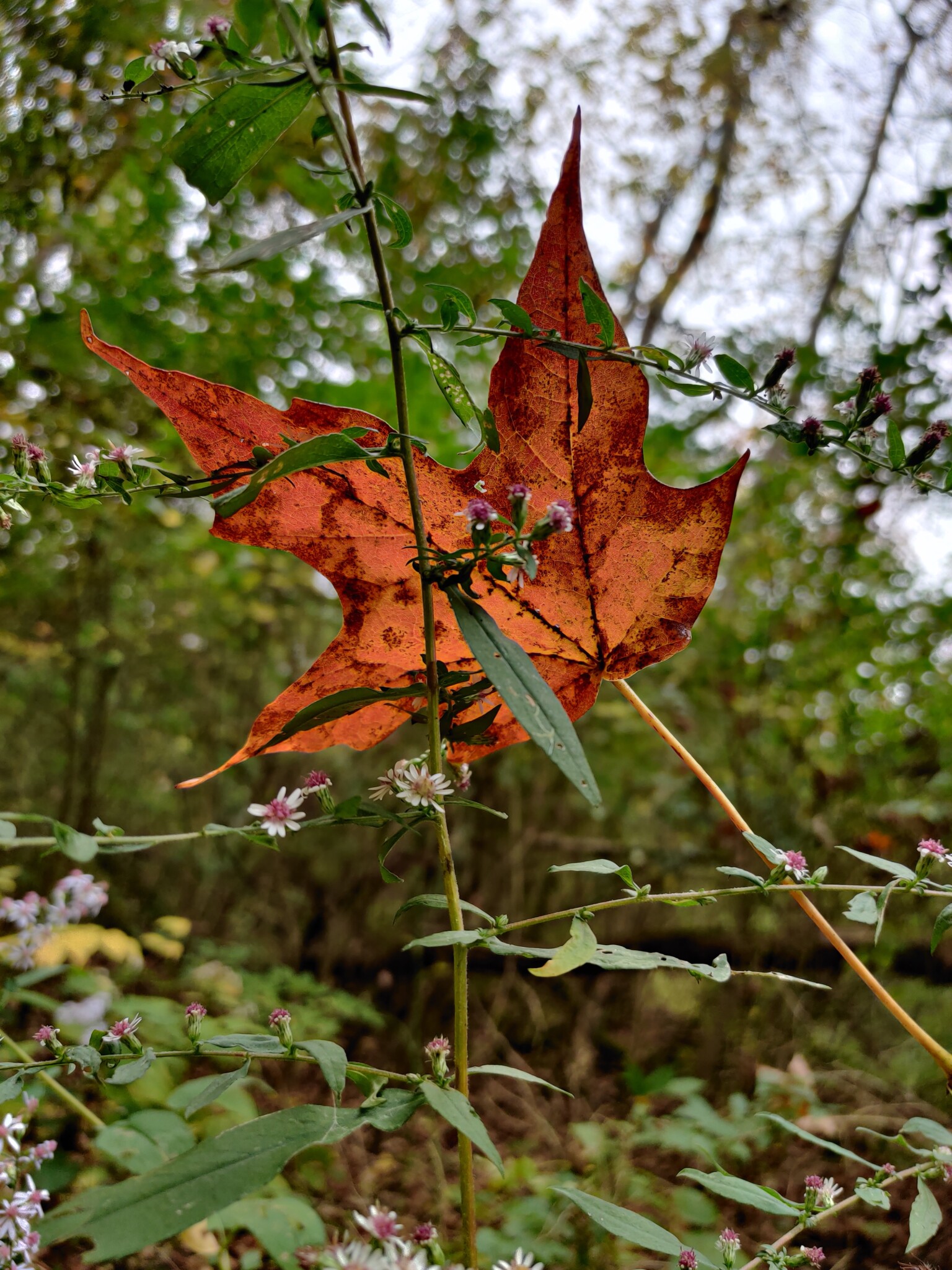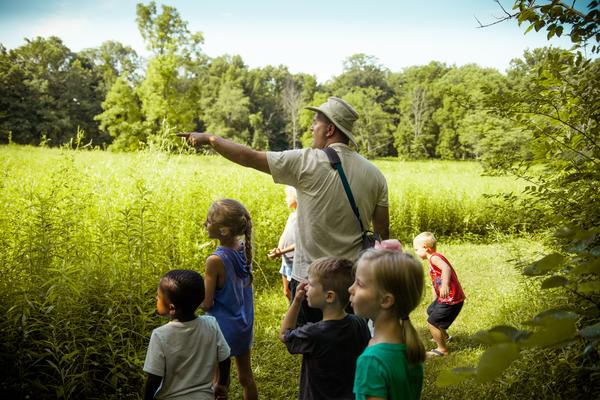Updated October 18th, 2023
Be Lazy With Your Landscape

This season, it’s time to chill – literally. When the weather cools and leaves start dropping, it’s good to be a little lazy with your yard.
Leaving leaves, sticks, clippings and more provides homes for wildlife and helps create a healthy ecosystem in your yard and beyond. MetroParks sustainability coordinator, Tim Pritchard, suggests adopting a more natural landscape that includes places for natural debris.
“Consider keeping some of your property relatively wild, like we do with natural areas at parks,” Pritchard said. “Remove invasive species, but let leaves and brush take over and create quality habitat. Even small areas like this can be very beneficial. These spaces can provide nice contrast to the manicured areas of property and provide privacy along boundaries.”

Tim’s Tips
- Choose less visible spaces, such as the area behind a shed or garage, to intentionally keep brush and debris. You can also create tidy brush piles in areas not used for other activities.
- Logs make nice landscaping accents, even as they begin to deteriorate, and create a soft offset to ornamental rocks.
- Leave your leaves: Piles or layers of fallen leaves will become leaf mold compost (leaves broken down by bacteria), which helps build quality soil over time.
- Don’t rake leaves or remove brush in areas where it won’t hurt to leave this natural material.
Species that Depend on Fallen Leaves to Survive
- Luna moths spend the winter as a cocoon camouflaged among the leaves.
- American bumble bees bury themselves an inch or two below the earth and fallen leaves form a layer of insulation over them.
- Woolly bear caterpillars are said to predict the harshness of the winter by the length of their black bands and often overwinter in leaf litter.
- Lizards, birds, turtles and frogs all use leaves as a winter habitat, too.
- Birds, chipmunks, amphibians and turtles also indirectly depend on fallen leaves because overwintering insects are an important part of their diets this time of year.
By leaving leaves where they fall, you can help many species who spend the winter tucked away under layers of leaves, other dead plant materials or the ground. Plus, all the time you save by being lazy with your landscape can be spent relaxing in nature and exploring the outdoors!





